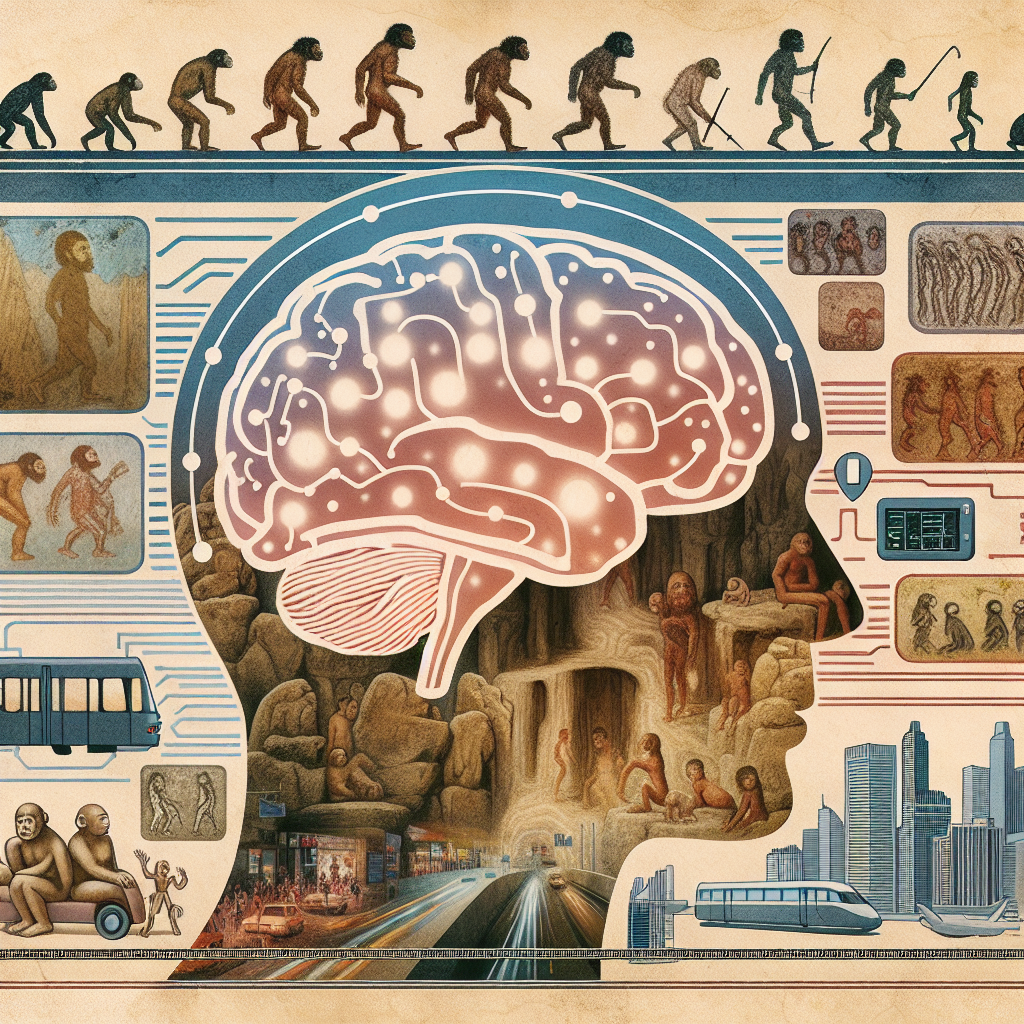Evolutionary Psychology is a relatively new branch of psychology that seeks to explain human behavior and thought patterns through the lens of evolution. By examining how our ancestors may have behaved and thought in order to survive and reproduce, evolutionary psychologists aim to shed light on why we act and think the way we do today. In this article, we will explore how evolutionary psychology helps us understand modern behavior and thought patterns.
Evolutionary psychology posits that many aspects of human behavior and thought can be explained as adaptations that helped our ancestors survive and reproduce in their environments. For example, the ability to detect and respond to threats quickly would have been crucial for early humans living in dangerous environments. This could explain why we still have a fight or flight response when we are faced with a dangerous situation.
Similarly, our preference for certain traits in potential partners can also be explained through evolution. For example, men may be attracted to women with symmetrical faces and a waist to hip ratio of 0.7 because these traits are indicative of fertility and health, which would have been important considerations for our ancestors when choosing a mate. Women, on the other hand, may be attracted to men who display traits that signal they can provide for their offspring, such as resources and status.
Evolutionary psychology also helps us understand why certain behaviors, such as aggression and jealousy, are common across cultures. These behaviors may have served important functions in our evolutionary past, such as defending resources or ensuring paternity certainty. By understanding the evolutionary roots of these behaviors, we can better understand why they persist in modern society.
One of the key insights of evolutionary psychology is the concept of the environment of evolutionary adaptedness (EEA). This refers to the environment in which a species evolved and the selective pressures that shaped its behaviors and traits. While our modern environment may be vastly different from the EEA of our ancestors, many of our behaviors and thought patterns are thought to be adaptations to that environment.
For example, our preference for sweet and fatty foods may have been advantageous in the EEA when such foods were scarce and provided much-needed energy. In modern society, however, where these foods are abundant and can contribute to health problems such as obesity, this preference can be maladaptive. By understanding the evolutionary roots of our behaviors, we can better understand why we may struggle with certain urges and cravings.
Evolutionary psychology also helps us understand why we may have certain biases and heuristics that affect our decision-making. For example, the availability heuristic, which leads us to overestimate the likelihood of events that are easily recalled, may have been adaptive in the EEA when quick decisions could mean the difference between life and death. However, in modern society, where we are bombarded with information and stimuli, this heuristic can lead to errors in judgment.
FAQs
1. How does evolutionary psychology differ from other branches of psychology?
Evolutionary psychology differs from other branches of psychology in that it seeks to explain human behavior and thought patterns through the lens of evolution. While other branches may focus on internal mental processes or social factors, evolutionary psychology looks to our evolutionary past to understand why we behave and think the way we do.
2. How can evolutionary psychology help us better understand mental health disorders?
Evolutionary psychology can provide insights into the origins of mental health disorders and why they may persist in modern society. By understanding the evolutionary roots of certain behaviors and thought patterns, we can better understand why certain disorders may arise and how they can be treated.
3. Are all aspects of human behavior and thought determined by evolution?
While evolutionary psychology posits that many aspects of human behavior and thought can be explained as adaptations, it is important to remember that not everything can be attributed to evolution. Cultural and social factors also play a significant role in shaping our behavior and thought patterns.
4. Can evolutionary psychology be used to justify certain behaviors, such as aggression or infidelity?
Evolutionary psychology does not seek to justify behaviors but rather to understand why they may have evolved. While certain behaviors may have served important functions in our evolutionary past, it is up to individuals to make moral judgments about their actions in modern society.
In conclusion, evolutionary psychology provides valuable insights into why we behave and think the way we do. By examining our evolutionary past, we can gain a deeper understanding of our modern behavior and thought patterns. While evolutionary psychology is still a relatively young field, it holds great promise for helping us unlock the mysteries of the human mind.




Leave A Comment